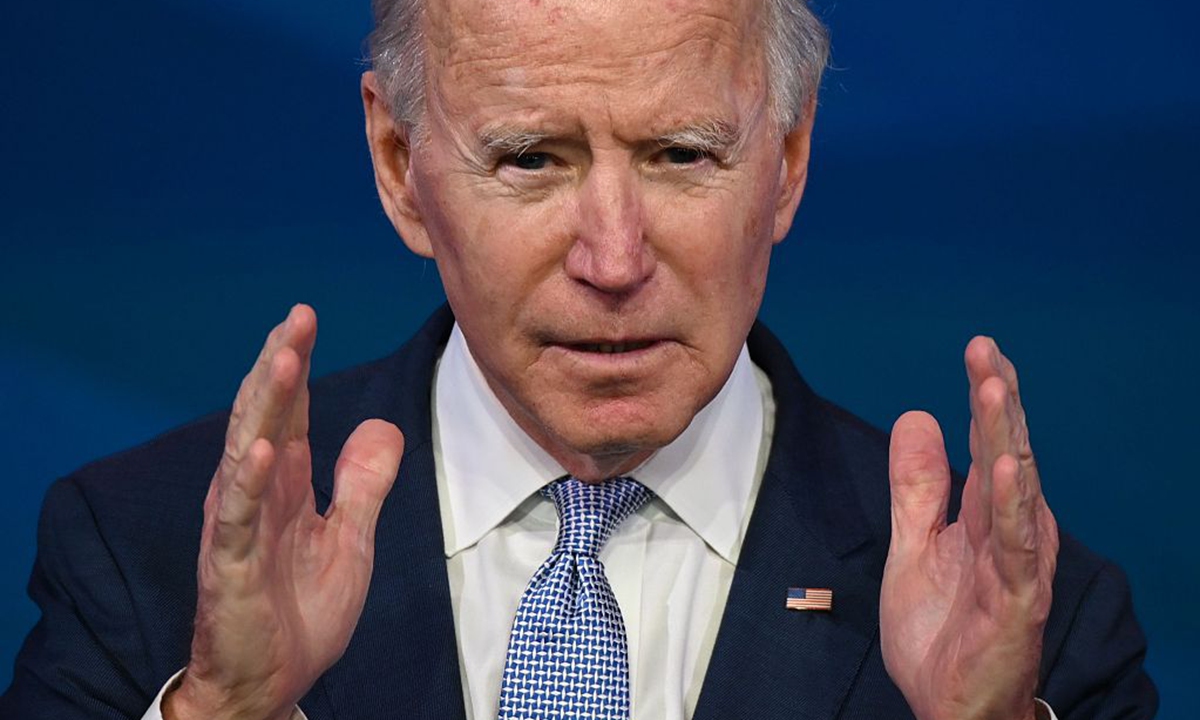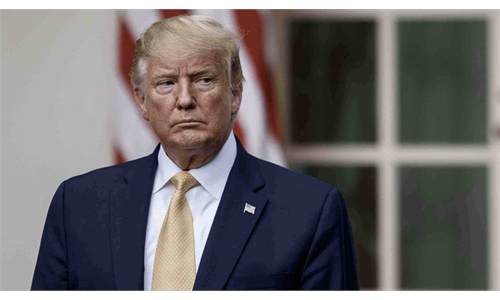Biden's Commerce Secretary pick expected to ease China-US trade tensions, yet confrontation will persist: analysts

Joe Biden. Photo: VCG
US President-elect Joe Biden has nominated Rhode Island Governor Gina Raimondo as his Commerce Secretary - a key agency at the forefront of handling policies with China, ranging from managing trade policy to formulating tech strategy.
Observers expect Raimondo, given her past moderate rhetoric about China, to ease trade tensions with Beijing caused by President Donald Trump and play an "active and predictable" role in facilitating China-US trade and economic dialogue.
But analysts stressed that trade relations will remain fraught and there won't be a big shift in Washington's overall strategy to curb Beijing's rise between Trump's policies and that of the incoming Biden administration, especially with the tech crackdown--though the means of achieving the goal may differ.
So far, most of Biden's key economic team members have been announced, except for the US Trade Representative (USTR), which holds the most weight in China-US economic cooperation. Analysts said choosing a USTR is a daunting task for Biden as the stakes are very high, involving not only US relations with China but also with its close allies, such as Japan, Europe and Canada.
Biden finalized his cabinet on Thursday night, according to media reports. Raimondo has served as the governor of Rhode Island since 2015, and was the general treasurer of the state before that.
She also has a background in venture capital. She co-founded Point Judith Capital in Rhode Island before entering public service.
Chinese observers said they are "a little surprised" at Biden's pick, who is from a little-known US state in the international arena and has limited dealings with China.
"But this is in line with Biden's picks of officials with multilateral views. US governors are more willing to promote China-US trade and economic dialogue than federal officials, as they are accountable to local voters. If such logic is inherited, it would be a positive sign for the world's two largest economies to repair sinking trade ties," Gao Lingyun, an expert at the Chinese Academy of Social Sciences in Beijing who closely follows China-US trade tensions, told the Global Times on Friday.
At a forum organized by China's General Chamber of Commerce on the sidelines of the US National Governor Association summer conference in July 2017 in Rhode Island, Raimondo said she hoped more consensus could be reached between China and the US with the upcoming US-China Strategic and Economic Dialogue, according to a People's Daily report. She also hoped the two sides could broaden their areas of cooperation, according to the report.
If approved by the Senate, Raimondo will head a department that is now led by Wilbur Ross, who, during his tenure, along with USTR Robert Lighthizer, aided Trump in launching a trade war with China.
More importantly, Ross also maliciously cracked down on China's tech rise. Through the Bureau of Industry and Security, he blacklisted various Chinese tech firms, including Huawei and ZTE, for a claimed national security threat, barring US suppliers from shipping components to them.
Raimondo is expected to play a key role in helping Biden decide whether to continue or withdraw this export control. Analysts hold a cautiously optimistic view, though they noted that Washington's long-standing confrontational stance toward Beijing won't change.
"But how they deal with China will be predictable, and their means of curtailing China will be different from Trump's," He Weiwen, a former senior trade official and a senior fellow of the Chongyang Institute for Financial Studies at the Renmin University of China, told the Global Times on Friday.
The US Commerce Department is less involved in trade affairs than the USTR, including trade talks with China. There's less than half a month before Biden is sworn in, yet the USTR nomination seems to be the only vacancy left in Biden's key economic team.
"Biden is struggling with the USTR pick, as it sets the tone for how the US navigates trade relations with China and its close allies. This is like pulling one hair and the whole body is affected, and Biden needs to trade off between someone who supports multilateralism while being able to act tough on foreign trade issues," Gao noted.


